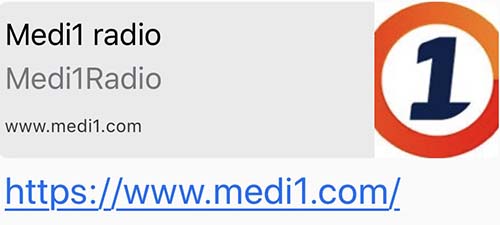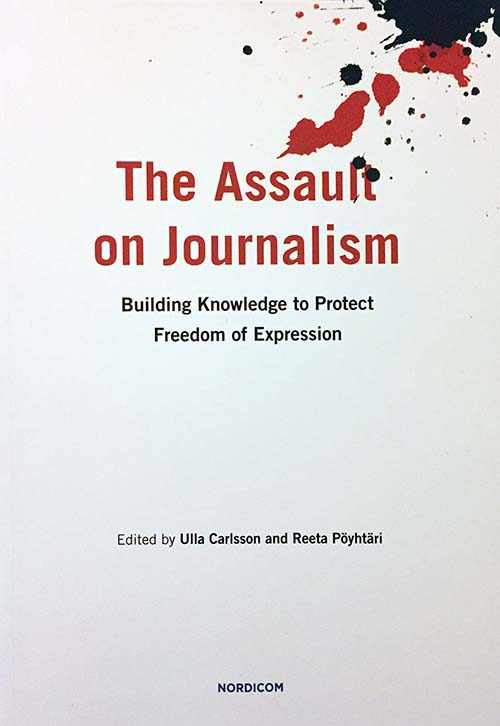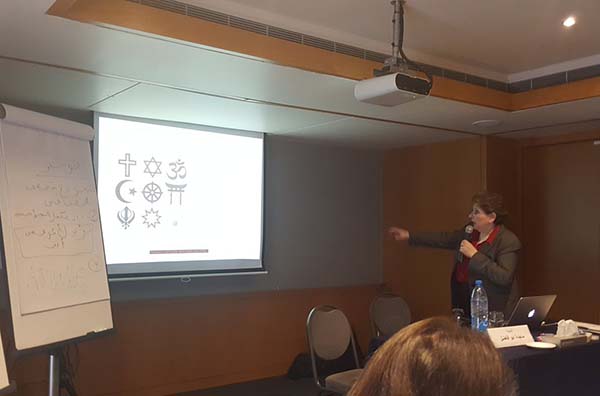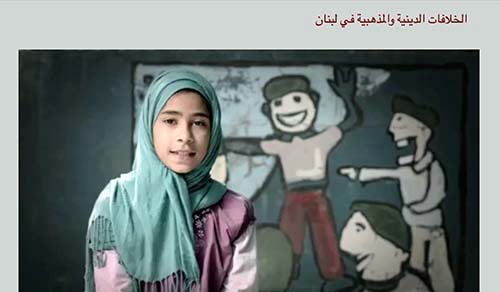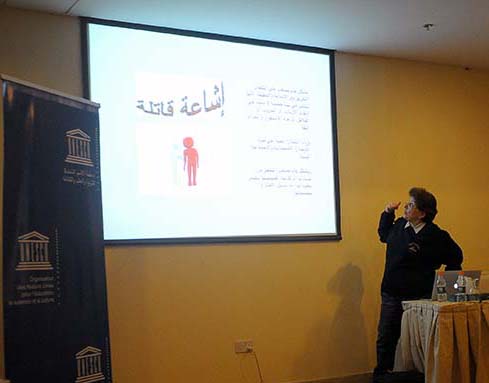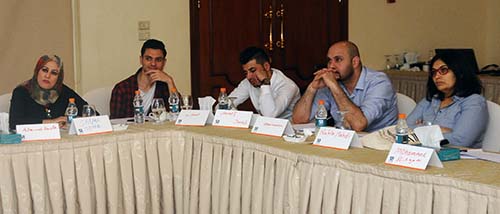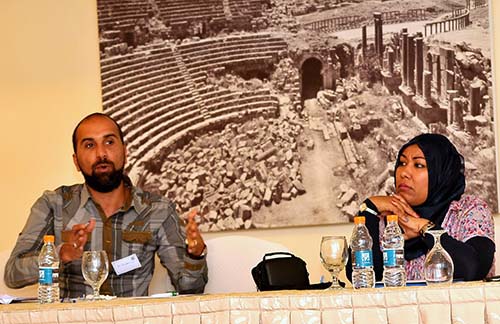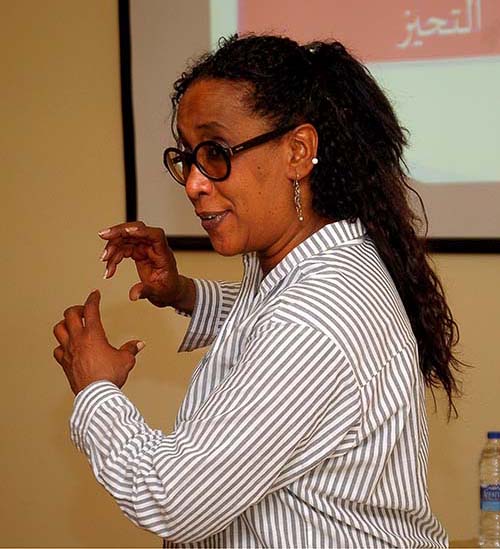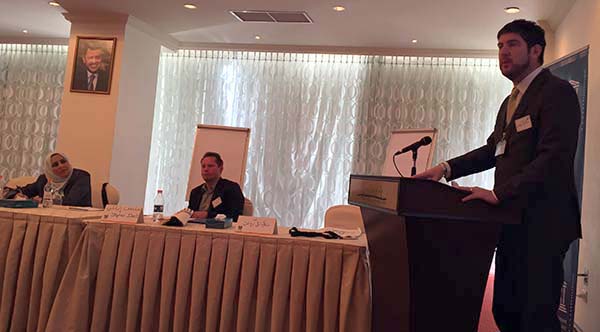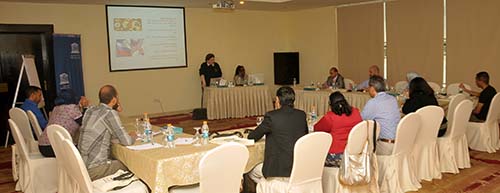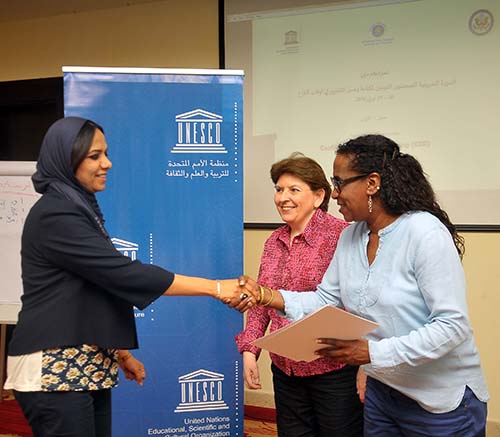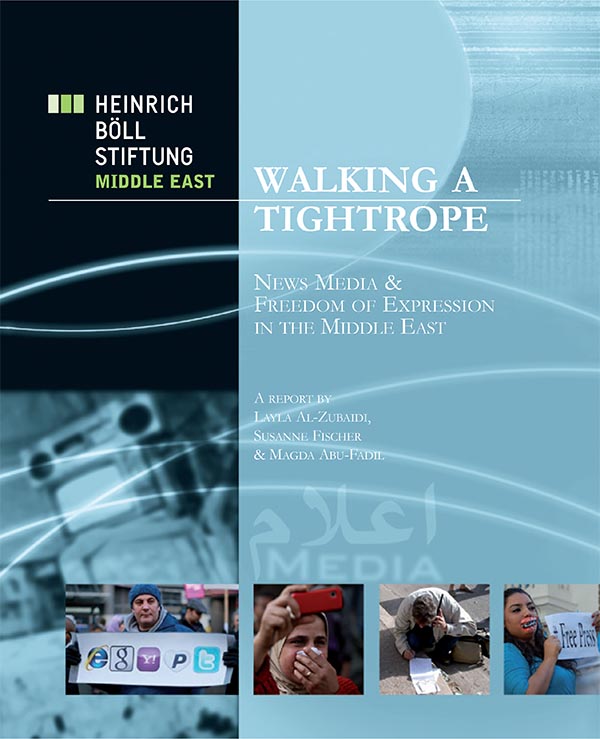Too many journalists are victims of violence and impunity and more should be done in academia to prepare media students for the perils they’re likely to face.
“I urge all faculty members here to incorporate a course on safety for journalists in their curricula,” Media Unlimited director Magda Abu-Fadil told academics and media experts in Helsinki. “It’s not a luxury, it’s an urgent necessity.”
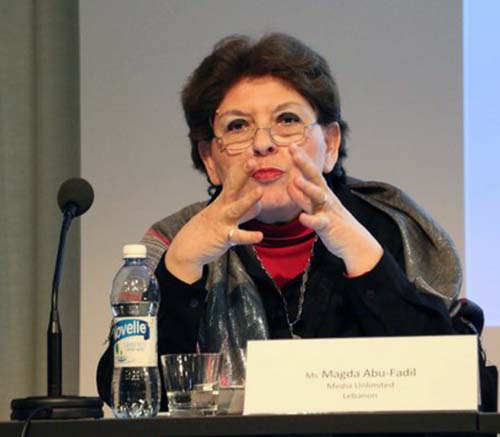
Magda Abu-Fadil on safety for journalists
Abu-Fadil was addressing the UNESCO Research Conference on Safety of Journalists in connection with World Press Freedom Day in May 2016 the Finnish capital.
According to UNESCO, one journalist is killed every five days in the line of duty and the impunity of such acts is unabated.
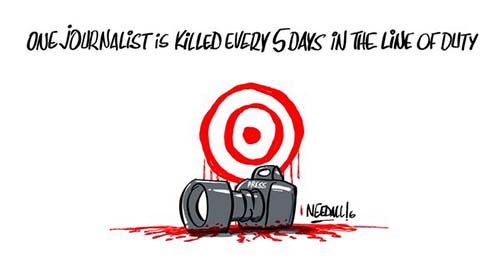
One journalist is killed every five days in the line of duty
Unlike the issues of journalism and freedom of expression, journalists’ safety has not been a very popular topic of academic research. It has rarely been discussed as a specific research question, much less in practical courses.
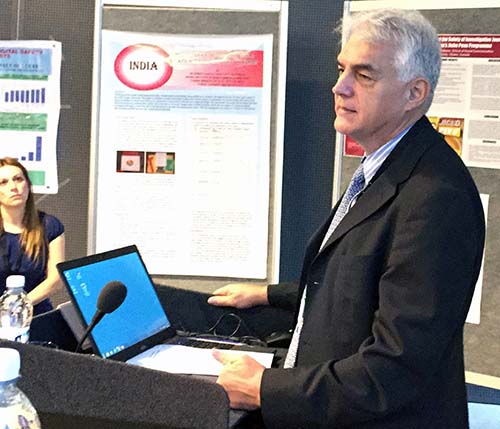
Guy Berger, UNESCO’s director of the Division for Freedom of Expression and Media Development
“Press freedom depends on safety,” noted Guy Berger, UNESCO’s director of the Division for Freedom of Expression and Media Development at the opening of a parallel research conference, adding that 95% of attacks on media staffers are never resolved.
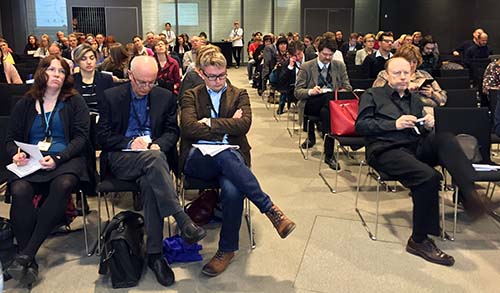
UNESCO WPFD parallel conference on journalists’ safety
Abu-Fadil participated in another session on new frontiers in disinformation and the use of propaganda.
Panelists discussed various aspects of media’s misleading messages, hate speech, phony photographs and visuals, manipulation by terrorist groups, and, the proliferation of news websites as a counterforce to government-controlled media and corporate monopolies.
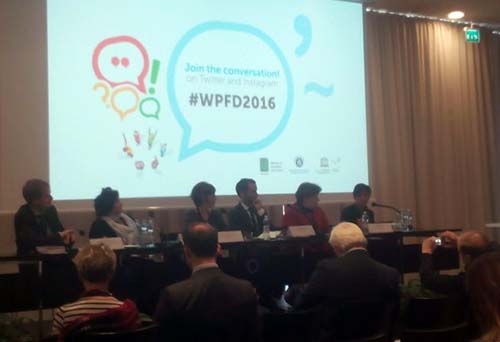
Abu-Fadil (second from right) tackles new frontiers in disinformation
This year’s WPFD coincided with the 250th anniversary of the world’s first Freedom of Information Law in Sweden and Finland. Finland was part of Sweden at the time.
The “Freedom of the Press Act 1776” passed by Sweden’s parliament abolished preventive censorship and made political debate – including criticism of the country’s rulers – permissible. But religious texts remained subject to prior censorship.
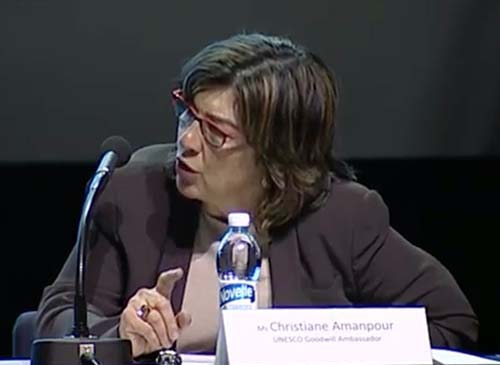
CNN’s Christiane Amanpour chairs plenary on “Protecting Your Rights – Surveillance Overreach, Data Protection, and Online Censorship”
“We need governments to be accountable and transparent,” said CNN chief international correspondent Christiane Amanpour, UNESCO Goodwill Ambassador for Freedom of Expression and chair of a plenary session entitled “Protecting Your Rights – Surveillance Overreach, Data Protection, and Online Censorship”.
Last, but not least, Abu-Fadil took part in “Promoting Freedom of Expression: A Public Seminar on UNESCO’s Impact in the Arab Region.”
The session focused on the importance of freedom of expression for sustainable development, democratic governance, and intercultural dialogue, notably in post-conflict environments.
The three-day conference, including off-site activities, was packed with sessions focusing on media coverage of the refugee crisis, artistic freedom, whistleblowers and source protection, hate speech and ethics, gender issues, and freedom of information.
The conference culminated in the Finlandia Declaration on Access to Information and Fundamental Freedoms.
